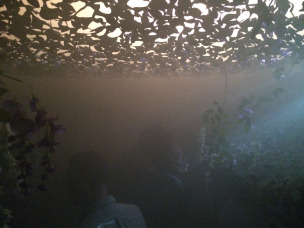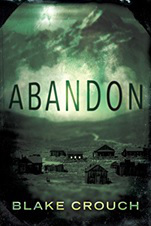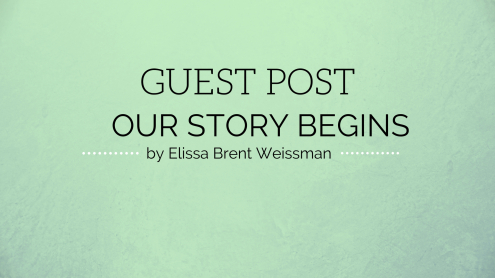This one-off event at Corsica Studios, London, was held on 20th September, featuring a curated pairing of installation and live music. Corsica Studios is a small venue, with two rooms and just enough space for a fairly small, but involved crowd. For this edition of the monthly ‘Ø’ event organised by Hyperdub Records, Mark Fisher and Justin Barton’s audio-essay and sonic installation Londonunderlondon was brought into public space after twelve years, alongside live DJ sets performed by Mana (Hyperdub), Martelo (NTS), and Embaci (NON).
Mark Fisher and Steve Goodman (also known as Kode9) were both members of the infamous Cybernetic Culture Research Unit at Warwick University. Fisher would go on to become a cultural theorist, writer, and critic, well-known for running the music blog ‘k-punk’; Goodman became an electronic musician and producer, founding Hyperdub Records. Their crossed paths and shared stages seem significant to the formation of this event in the least.
The sonic installation was in a darkened room and without any visual accompaniment to hold one’s attention. The installation itself is somewhat disarming because of this, the sounds demanding full attention in order to follow the weaving narrative. This removed situatedness gives the room a dream-like quality of suspension, through which one listens mesmerised, mind wandering, Mark Fisher’s gentle voice guiding the way. In the setting up of this event, Hyperdub’s attention to curation is apparent.
The 90-minute audio-essay is structured into various parts that characterise London’s culture, through cultural markings like landmark buildings and golden postcode areas, and products of British culture. It also approaches colonial history like the opium trade. Through the course of the audio-essay there is a shift from plausible and familiar, to fictionalised science fiction products. The form of the audio-essay is primarily narrative but with changing sonic backgrounds. There are Gothic elements that come alive, particularly in the mentioning of Marx’s Gothic London, and a discussion of “finance vampires”, a “necro-political” takeover, and “capital mausoleums”. These phrases paint a speculative picture of London beyond the mind-set of Capitalist Realism, a term used by Fisher to describe our collective inability to envision a cohesive governing system besides/beyond Capitalism. These words serve to reorient and reveal their affect. At the epicentre of the global capital is London, with a 500-year history of living labour powering the city, the capital of the British Empire, one that Fisher makes a point of bringing up.
Londunderlondon starts with schoolchildren chanting and Fisher’s voice, soft yet precise, narrating over ambient textures and chiming of church bells. He describes the life of a man in London who is content, an unusual state of being in crumbling, wet, unhappy London – a man who attempts to map the city through personal and collective memories, visiting dusty museums and other public places that define London, the global city. Studying archival material from film and television and photographs of a disappeared woman, there is a theme of nostalgia made evident in the first part of the audio-essay. The man he describes, revels in the aesthetic of 8 mm film and other defunct past technologies as he traces a less digital and more tactile world.



(Courtesy of Hyperdub Records)
The idea of nostalgia as resistance and an idealisation of lost futures is an important part of Fisher’s work, yet it seems like a critique of the falsely linear narrative that British history assumes and its particular culture of nostalgia. Time, along with the earth, have been colonised. A distance emerges, from the status of alienation. Fisher spent much of his life politicising mental health under the structures of capitalism. His audio-essay perhaps offers a comparison in experience this way, through the incorporation of harsh and drudging sounds that were quite in contrast to other parts.
“Londonunderlondon” – a dissonant whisper emerges from the background, as the man relives the Kennedy assassination and the rise of the Beatles from past newscasts. The soundscape quickly transitions to bear discomfort and a sense of precarity in the concrete jungle of urban living. Soon London and time stretch to open up, revealing tentacled creatures. The speculative fictions start overcoming the time that Fisher describes, whether past or present, it is indistinguishable in occurrence. He speaks of existence beyond humanity, to that of Martians and pre-historic creatures, to situate meaning beyond the juncture between human and non-human. Ahistoricity is presented as a condition in the specific present that Fisher witnessed, through the nature of digital technology and constant reproduction, even from the time of the television. Towards the end of the essay there is a pejorative, mocking tone in talking about white boys entranced by the TV, watching events like the Bay of Pigs and Cuban missile crisis. There is a fracture that Fisher indicates, between meaning/context/affect and mass viewing of global encounters.
There are various changes of voice and tone that occur through the sections, interspersed eventually with the sounds of animals, insects, gesturing towards the Anthropocene, the epoch of human dominance over nature. Londonunderlondon speculates over the ultimate reclamation of urban space through a “silent environmental revolution” taken on by non-human life. This is spoken amongst squawks and screeches, as reptiles and basilisks emerge from the sunken ground of Londonunderlondon to take over. Through this entire experience, it seems appropriate to be left without visual aid taking into account a primarily visual-focused culture that especially dominates digital reality as we perceive. Today image is king. This is a particularly rich segment of the sonic installation as sounds of the wild rapidly enter our space, and so it seems. Feeling crowded by iguanas and mosquitoes as the noises get louder unto themselves, creating such an agitation in feeling.
Stumbling into the next darkened room, the sound and all-powerful speaker system supplies complete stimulation of senses. The DJ sets consisted largely of industrial sounds and heavy, often intricate beats, with hip-hop and jazz in the mix as well. It works well as an extension of the installation to transition into the space. It’s unfair to generalise given the three separate artists that performed but the seamless changes, darkness and flashing lights very much linked the overall experience.
The experience was very much singular, subjective, in terms of appreciation of the sensory and informational inputs provided, it ended up being very much immersive. Through the course of the night, with a comfortable yet intense experience of music, and sonic landscapes, it helped to link some of the theories of Fisher to the notional experiences – insomuch as experiencing a micro-utopia, similar to his recurring theme of lost futures and speculative praxis.
Advertisements Share this:






